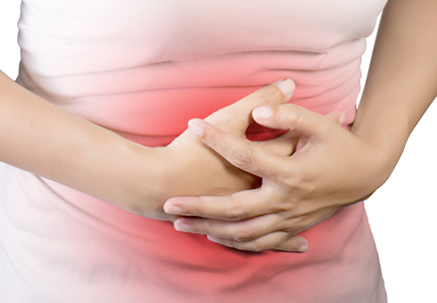What causes Ulcerative Colitis?
The causes of UC are largely unknown. There is some evidence that it may be related to genetic, infectious, immunologic and psychologic factors which have all been suggested.
- Family history of ulcerative colitis.
- No specific preventive measures.
- Sometimes curable with surgery. If not curable, symptoms can be controlled with treatment.
How is ulcerative colitis treated?
When seen by a specialist, typically assessment begins with diagnostic tests which may include laboratory stool and blood studies, x-ray of the colon (barium enema), sigmoidoscopy (method of examining the rectum and lower part of the colon with an optical instrument with a lighted tip), and biopsy of the colon lining.
Treatment is then determined by severity and extent of inflammation, response to previous treatments, and impact of illness on you. Methods may include medications, surgery to remove the diseased colon and dietary restrictions.
Hospitalization may be necessary during the worst episodes.
- To reduce cramps, apply a hot-water bottle, warm moist towels or heating pad to the abdomen.
- Bed rest may be necessary during acute attacks. However, resume normal activity as soon as symptoms improve.
- Vitamin and mineral supplements may be needed.
- If abdominal cramping, eat canned or cooked fruits and vegetables (skin on foods can be abrasive). Avoid raw fruits and vegetables.
- If diarrhea present, avoid roughage in diet and intestinal irritants (spicy foods, caffeine and alcohol).
- Iron replacement may be necessary.
- Avoid milk products if you have a lactose intolerance.
- Don’t use aspirin. It increases the bleeding risk.
- Anti-diarrhea medication for minimal symptoms.
- Sulfa drugs, such as 5-ASA for moderate symptoms or medicated enemas (usually with hydrocortisone).
- Cortisone drugs for severe disease especially during an acute flare.
- Immunosuppressive and biologic drugs in patients with chronic disease.
- All medications have failed to suppress the chronic inflammation of the colon.
- Acute severe flare at risk of severe sepsis, life-threatening rectal bleeding or bowel perforation.
- Longstanding ulcerative colitis can lead to colorectal cancer which would need surgical removal.
